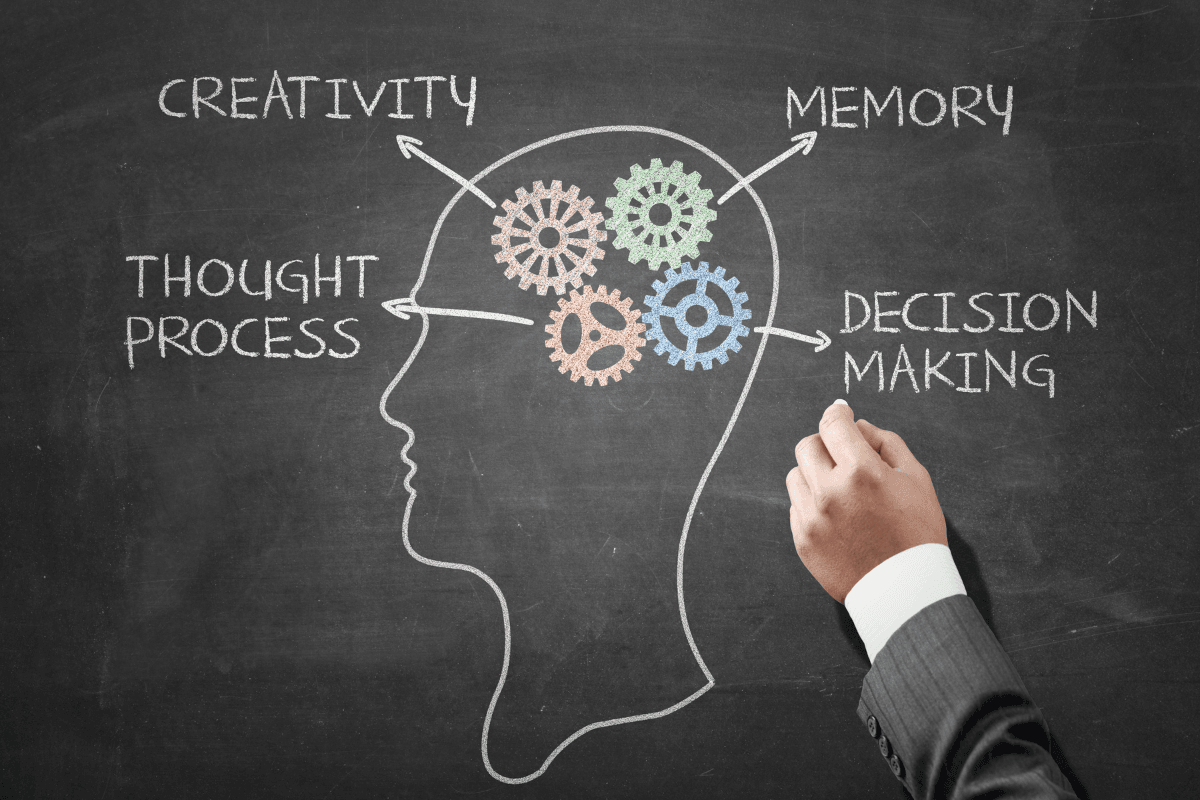In the world of weight loss solutions, medications like Ozempic, Mounjaro, and other GLP-1 receptor agonists are gaining attention for their effectiveness in helping individuals shed pounds. These weight loss solutions, originally designed to manage diabetes, have shown promise in promoting weight loss by controlling appetite and regulating blood sugar.
However, beyond the physical changes, many are curious about their emotional effects. Weight loss can significantly impact mental and emotional well-being, and understanding how these medications affect mood, motivation, and overall mental health is essential.
In this guide, we’ll explore the emotional side of weight loss with Ozempic, Mounjaro, and GLP-1 treatments, helping you navigate the journey of both physical and emotional transformation. Whether you’re considering these medications or already using them, learn how they can impact not just your body but your mind as well.
Embrace the New You: Understanding the Emotional Effects of Weight Loss Solutions
Understanding the Link Between Weight Loss and Emotional Well-Being

Weight loss is often seen as a purely physical process, focused on shedding excess pounds and achieving a desired body shape. However, the emotional well-being of an individual plays a significant role in their weight loss journey. The connection between weight loss and emotional well-being is complex and multifaceted.
When individuals embark on a weight loss journey, they may experience a range of emotions, including excitement, motivation, frustration, and even anxiety. These emotions can stem from various factors such as societal pressures, personal expectations, and past experiences with weight management.
Ozempic and Mounjaro are two medical weight loss solutions that have gained attention for their potential to not only aid in weight loss but also impact emotional well-being. These medications belong to a class called GLP-1 receptor agonists, which work by mimicking the effects of GLP-1 (glucagon-like peptide-1), a hormone that regulates blood sugar levels and appetite.
Research suggests that GLP-1 receptor agonists like Ozempic and Mounjaro may have positive effects on emotional well-being by influencing neurotransmitters in the brain that regulate mood. By stabilizing blood sugar levels and reducing cravings, these medications can help individuals feel more in control of their eating habits, leading to improved self-esteem and reduced emotional distress related to food.
The Rise of GLP-Receptor Agonists in Weight Management

In recent years, GLP-1 receptor agonists have gained recognition as effective tools for weight management. These weight loss injections, initially developed for type 2 diabetes management, have shown promising results in clinical trials by helping individuals achieve significant weight loss while also improving glycemic control.
This dual benefit has made GLP-1 receptor agonists a popular option for those struggling with both weight and metabolic health issues.
One of the leading GLP-1 receptor agonists, Ozempic (semaglutide), has been approved by the FDA for obesity treatment. It works by mimicking the hormone GLP-1, which targets areas of the brain that regulate appetite and digestion.
By slowing down the rate of stomach emptying and promoting satiety, Ozempic reduces food intake, leading to weight loss. Mounjaro (tirzepatide), another GLP-1 receptor agonist, has shown even more promise by activating multiple hormone pathways that influence hunger and fat storage.
While these weight loss treatments are powerful, they are most effective when combined with lifestyle modifications. Patients are encouraged to follow a balanced, healthy diet and maintain regular physical activity. This holistic approach not only helps with weight loss but also promotes long-term health benefits like improved cardiovascular function and better metabolic outcomes.
As research on GLP-1 receptor agonists continues, their role in combating the global obesity epidemic is becoming increasingly significant, offering new hope for individuals seeking to improve their health through sustainable weight management.
Exploring the Mechanisms of Ozempic and Mounjaro

Ozempic (semaglutide) and Mounjaro (tirzepatide) function by activating GLP-1 receptors in the body, triggering multiple physiological responses that aid in weight loss and glycemic control.
These medications are part of the GLP-1 receptor agonist class, which mimic the effects of the naturally occurring hormone GLP-1, known for its role in regulating blood sugar levels and appetite, which can help lose weight.
By stimulating these receptors, Ozempic and Mounjaro slow down gastric emptying, reduce appetite, increase satiety, and enhance insulin secretion—leading to significant weight reduction and better blood sugar management.
Slowing digestion helps individuals feel fuller for longer, thereby reducing the desire to snack or overeat. This effect not only contributes to physical weight loss but also positively influences emotional well-being, as it minimizes the guilt or frustration often associated with compulsive eating habits.
In addition to physical benefits, GLP-1 receptor agonists are increasingly being studied for their potential mental health benefits. Emerging research suggests that medications like Ozempic and Mounjaro may alleviate symptoms of anxiety and depression, particularly in individuals with obesity or type 2 diabetes.
This mental health improvement could be linked to the reduced stress associated with managing weight and the positive metabolic changes induced by these drugs.
Emotional Resilience: How GLP-Medications Can Support Mental Health

Mental health is a key component of overall wellness, particularly in the context of weight management. Emotional resilience—the capacity to cope with challenges and adapt to stress—plays a significant role in navigating the ups and downs of any weight loss journey. GLP-1 receptor agonists like Ozempic and Mounjaro can support emotional resilience by improving both physiological and psychological aspects of health.
By stabilizing blood sugar levels, these medications help reduce the likelihood of mood swings and energy crashes, which are often associated with irregular glucose levels. This stabilization can help curb emotional eating, a common response to stress or negative emotions, allowing individuals to maintain better control over their dietary habits.
In addition to metabolic benefits, the weight loss achieved with GLP-1 medications often leads to enhanced self-esteem and a more positive body image.
This boost in confidence can have profound effects on emotional well-being, helping individuals feel more empowered and resilient in the face of life’s challenges. The combination of improved physical health and a more positive mental outlook creates a strong foundation for long-term success in weight management and overall mental health stability.
Moreover, studies suggest that GLP-1 medications may have direct positive effects on mental health, potentially reducing symptoms of depression and anxiety, which are common in those struggling with obesity. This holistic approach to both physical and emotional well-being makes GLP-1 medications a valuable tool in promoting sustained weight loss and a healthier mindset.
Breaking the Stigma: Addressing Emotional Eating and Self-Worth

When it comes to weight loss solutions, addressing emotional eating and self-worth is crucial for long-term success. Emotional eating, often fueled by stress, loneliness, or boredom, can hinder progress and lead to unhealthy relationships with food. Recognizing and breaking the stigma surrounding emotional eating is the first step towards a healthier lifestyle.
Ozempic, Mounjaro, and GLP-1 are medications that have shown promising results in weight loss journeys. However, their emotional effects are often overlooked. Understanding how these medications impact mood, self-esteem, and overall well-being is essential for a holistic approach to weight management.
Emotional eating is often a coping mechanism for underlying emotional issues. By addressing the root causes of emotional eating, individuals can develop healthier coping strategies and improve their self-worth. Therapy, mindfulness practices, and support groups can be valuable tools in this process.
Self-worth plays a significant role in weight loss journeys. Building self-esteem and self-compassion can help individuals navigate challenges, setbacks, and societal pressures. Accepting and loving oneself, regardless of weight or appearance, is key to sustainable weight loss and overall well-being.
Breaking the stigma surrounding emotional eating and self-worth requires a shift in mindset. It’s essential to recognize that weight loss is not just about physical transformation but also about emotional healing and self-discovery. By addressing these aspects, individuals can not only achieve their weight loss goals but also cultivate a positive relationship with food and themselves.
The Psychology of Weight Loss: Unpacking Identity and Confidence

When it comes to weight loss solutions, it’s crucial to delve into the psychology behind it. The journey of shedding excess weight is not just physical; it’s deeply intertwined with one’s identity and confidence. Understanding how these factors play a role in the process can be key to successful weight loss.
Identity forms a significant part of our weight loss journey. Our self-perception, beliefs, and past experiences shape how we approach losing weight. For some, weight may be tied to their sense of self-worth, leading to emotional eating or self-sabotage. Unpacking these identity issues can help individuals develop healthier habits and attitudes towards weight loss.
Confidence also plays a vital role in the weight loss process. Believing in one’s ability to make positive changes is essential for long-term success. When individuals feel confident in their choices and abilities, they are more likely to stick to their weight loss plan and overcome challenges along the way.
By addressing the psychological aspects of weight loss, including identity and confidence, individuals can cultivate a positive mindset towards their journey. Embracing a mindset that values self-care, resilience, and self-acceptance can lead to sustainable weight loss results and improved overall well-being.
Navigating the Emotional Rollercoaster of Transformation

Embarking on a journey towards weight loss is not merely about physical transformations but also involves navigating the emotional rollercoaster that comes with it. When exploring weight loss solutions like Ozempic, Mounjaro, and GLP-1, it is essential to understand the emotional effects that accompany this transformative process.
Weight loss solutions offer a glimmer of hope for many individuals seeking to achieve a healthier lifestyle. However, the path to shedding excess weight is often fraught with emotional hurdles that can make the journey challenging.
One of the emotional effects commonly experienced during weight loss is the fear of the unknown. Starting a new medication or treatment like Ozempic or Mounjaro can stir up feelings of uncertainty and anxiety. It’s normal to feel apprehensive about the potential side effects or the effectiveness of these solutions.
Moreover, the emotional impact of weight loss solutions extends beyond just the physical changes. GLP-1 medications may lead to alterations in appetite and food preferences, triggering emotional responses such as frustration or even guilt. Dealing with these changes requires a significant amount of emotional resilience and self-awareness.
As individuals progress on their weight loss journey, they may also encounter feelings of self-doubt and insecurity. The process of transforming one’s body can unearth deep-seated emotions related to self-worth and body image. It’s essential to address these emotional struggles head-on and seek support from healthcare professionals or therapists if needed.
Despite the emotional challenges that come with weight loss solutions, it’s crucial to remember that every step taken towards a healthier lifestyle is a victory in itself. Celebrating small wins, practicing self-care, and surrounding oneself with a supportive network can help mitigate the emotional rollercoaster of transformation.
Harnessing Emotional Intelligence for Sustainable Weight Loss

When it comes to sustainable weight loss, harnessing emotional intelligence can be a game-changer. Understanding our emotions and how they impact our eating habits and lifestyle choices is crucial in achieving long-term success in weight management.
Emotional intelligence plays a significant role in how we approach food and exercise. Being aware of emotional triggers that lead to overeating or unhealthy food choices is essential. By developing strategies to cope with stress, boredom, or emotional eating, individuals can make more conscious decisions that support their weight loss goals.
Incorporating mindfulness techniques, such as meditation or deep breathing exercises, can help increase self-awareness and emotional regulation. Practicing self-compassion and positive self-talk can also improve motivation and confidence in sticking to a weight loss plan.
Building a strong support system that includes friends, family, or a weight loss group can provide encouragement, accountability, and a sense of community. Surrounding oneself with positive influences can help navigate the emotional challenges that often accompany the weight loss journey.
Conclusion: Integrating Emotional Wellness into the Weight Loss Journey
The journey towards sustainable weight loss goes beyond physical changes; it encompasses emotional well-being as well. Ozempic, Mounjaro, and other GLP-1 receptor agonists offer a unique approach that addresses both aspects of this transformative process.
Ultimately, by integrating emotional wellness into the weight loss journey, individuals can achieve not only physical transformation but also a profound sense of well-being that extends far beyond the numbers on the scale.
At Buttimer Consulting, we provide transformative speaking and life coaching to help you navigate these changes and achieve sustainable results. Contact us today at (404) 949-9500 or reach out through our website form to start your journey toward holistic wellness with personalized guidance and support.









